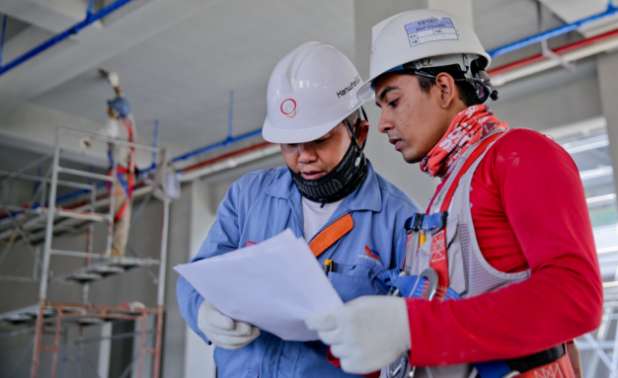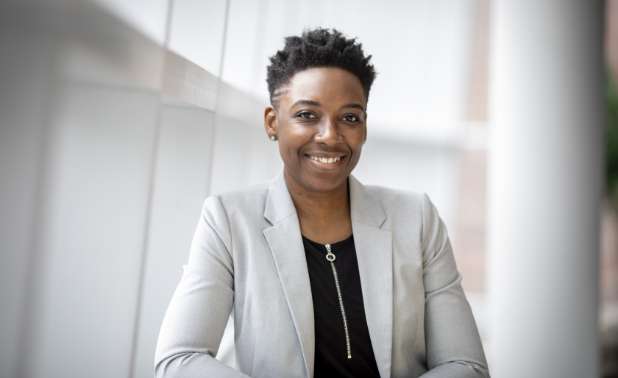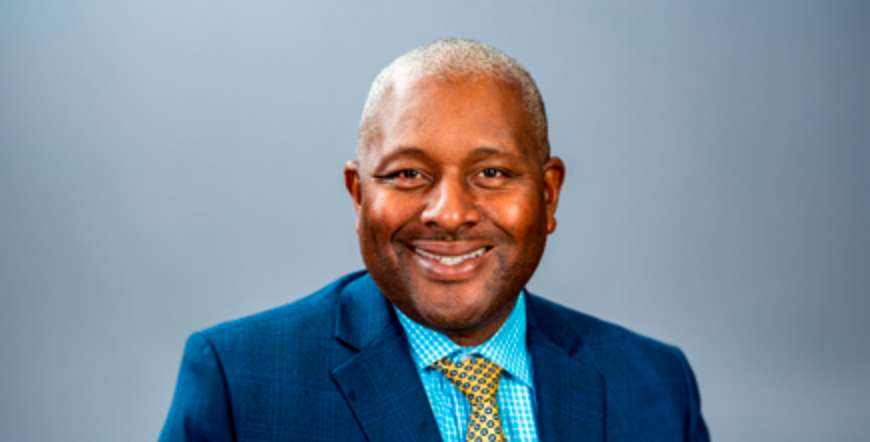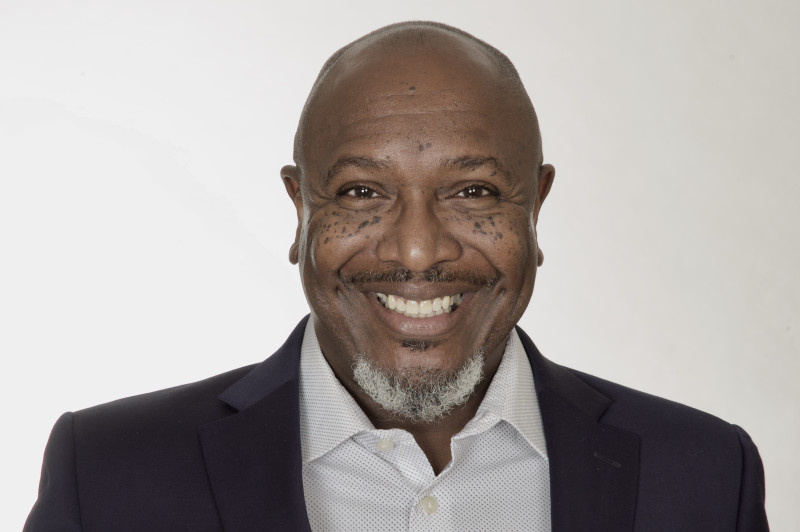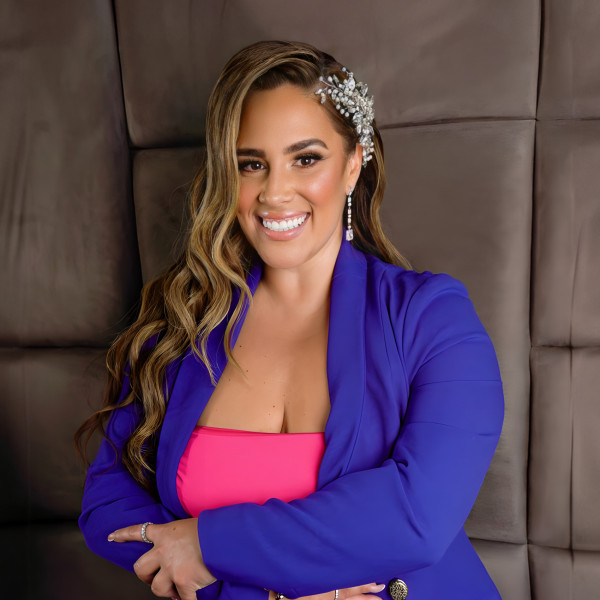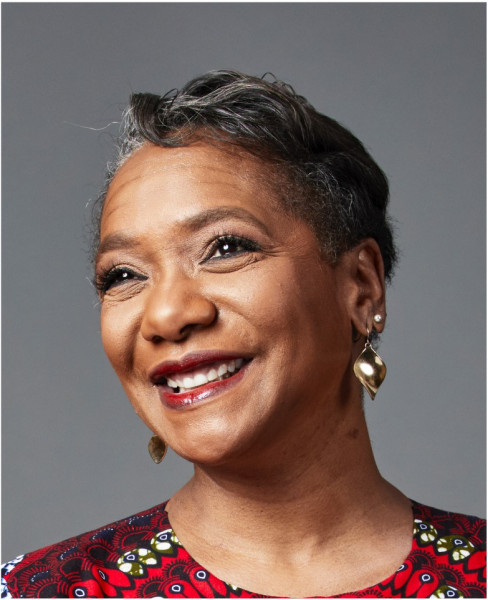Kamela Forbes:
Hello and welcome to But First, People, a podcast presented by Pride Global that explores the remarkable diversity of the world of work. I’m your host, Kamela Forbes, and for this month’s episode I had the pleasure of speaking with Dale Favors.
Dale is a passionate DE&I advocate, seasoned leader, educator, and sales expert. He’s worked with reputed firms such as Morgan Stanley, Bloomberg, and Royal Bank of Canada, where he has built relationships with some of the world’s largest hedge funds, asset managers, and corporations.
As the managing partner at Adaptive Growth Leadership, Dale has helped clients advance their DE&I initiatives while driving business and revenue growth. He sits on the board of New Jersey Chamber of Commerce, the National Association of Securities Professional, and HealthRight.
And in this episode, Dale joins me in person to discuss how companies can create more inclusive environments and build more diverse leadership teams, as well as sharing info on what actions underrepresented individuals should take to build connections and grow their opportunities for professional advancement.
Dale, welcome to the show.
All right, Dale, welcome to But First, People. As you probably have heard from past episodes, we always like to kick off our podcast with asking our guests to sing a song for us. It’s our version of getting in, getting real, getting to know each other. What song would you like to sing for us today?
Dale Favors:
Being a young man from Dayton, Ohio, I got to represent some of my Dayton, Ohio crooners of the day, soul bands. But one I’m going to highlight is Heatwave. Johnnie and Keith Wilder actually grew up with my parents, and I loved Heatwave. So I’ll sing a little bit of “Always and Forever,” how about that?
“Always and forever.
Each moment with you.
It’s just like a dream to me that somehow came true. And I know tomorrow will still be the same, because we’ve got a life of love that won’t ever change.”
That’s what I have for you.
Kamela Forbes:
All right, I was ready for you to hit that note, go up on octave on me.
Well Dale, we got to hit the karaoke bar sometime, you sound like you’ll be a good karaoke partner. But let’s jump into it here.
In addition to all that great singing and soulful crooning you’re doing, you’re also doing a lot of work around inspiring transformative leaders and impactful organizations. And you’re so involved in working with young professionals to help with leadership development, and you invest in helping companies to empower their workforce and enhance productivity through diversity, equity, and inclusion.
But tell me, what is it that you think that connects you to this work? In other words, what is your why?
Dale Favors:
Yeah, I tell you, I probably was always a teacher. I looked back and said, whether it was my father or my mother, they were always very influential, in not just helping me and my siblings, but helping other people. So my mother, it could be family, it could be friends, it could be whomever. She always pushed people to get the most out of themselves.
My father was always a coach, so he was my coach in every sport, probably up until middle school. And so I watched those two individuals assist in the development of other people, and I found that that’s just what you’re supposed to do.
And so there was a number of people who helped me in my journey professionally to get to Wall Street, and I felt it was always my obligation to give back, to lay that pathway for others to come behind me. So that’s what it is.
Kamela Forbes:
Like I say, it’s always about sending that elevator back down.
Dale Favors:
Have to.
Kamela Forbes:
Well, coaching and teaching, they’re basically the pillars of everything that we do, especially in the diversity, equity, and inclusion space. And when you add to that, I’ve heard you say often that maintaining a culture that is diverse and inclusive is critical to the growth and evolution of any organization. And as such, your firm, Adaptive Growth Leadership, helps clients with developing programs and strategies that promote the importance of things like teamwork, trust, physiological discovery, and continuous personal improvement.
Now, that’s a lot to dissect there, but let’s start with what are some of the effective strategies you would say in creating a more inclusive work environment?
Dale Favors:
Number of companies will come out and say they try to build inclusive cultures or whatever they want to do. And that sounds good, but what does it actually mean? And you have to get them to define that.
And then, okay, so if that’s what it means, how do you want to go about creating that? And then once you help them break that down, it’s then, okay, so then what should we do?
So it might be a four-pronged approach, it might be a two-prong, whatever it is. You may say, "Hey look, we need to first develop relationships with young people or platforms in which that can deliver young talent into our firm." So that’s building a pipeline that way. We may need to also work with our existing employees to create a broader understanding of how diversity can benefit the organization and help us all generate more revenue.
So then that’s another piece of that. And then at the senior level, we may need to become more intentional about making sure that as an organization, we’re inclusive in not just our hiring practices, not just our development of young managers, but our connectivity with vendors and suppliers of products and services that our firm consumes.
How should we be doing that? We also need to be compelled to understand how diversity influences buying decisions. So how do we connect with a diverse community of buyers of our products and services?
Well, maybe we need to have diverse talent throughout the organization at the senior level as well as at the board level. And so helping organizations figure out what that is, and then actually executing on a plan to develop all components of that. So that’s what we try to do. So we work with them at the early entry level of developing and introducing talent to what they do as an organization.
It’s having younger employees understand the skills and tools and techniques needed to develop and become managers. And then helping managers understand how to cultivate talent and nurture talent, and then senior managers how to give people and help them understand the importance of stretch assignments. Or help them understand how to navigate different environments.
And then understand how do we connect with customers, and leave a message with our customer that we are inclusive, we promote diversity, and we promote engagement amongst our employees to get to know each other better. So those are all the things that are important.
Kamela Forbes:
I love that you touch on so many different facets of it from the client perspective, the customer perspective, the employee perspective. And if I could just hone in on that nugget a bit, you talk about training modules, but how can we create safe spaces for dialogue and constructive conversations around DE&I? Because as you mentioned, it’s about people managers. Being able to connect and create that space with their employees and their direct reports.
So what is it that you think is a great way for them to create safe spaces for people to actually feel like they could come and share their concerns with the company, with their managers, to be able to create those psychologically safe spaces?
Dale Favors:
What ends up happening is we have to first break ourselves down and understand we’re all human. And as humans, we develop habits and we do things that are comfortable to us. We want our kids to go to school in places where they can meet friends that have common backgrounds, or whatever it is.
But how do we then bring people from different backgrounds into a workspace and encourage them to get to know each other? A, that has to start from the top. And the senior management has to be open to doing the things of going into uncomfortable places or creating an environment where uncomfortable conversations can be had.
So it may be a situation, it could be something as simple as you’re here in the office, there’s other people, men and women that are in the office, and you come in on a Monday and you had a totally different hairstyle than you had on Friday when you left. People are curious, how did your hair get longer? How did you suddenly have braids down the end of your back? How does that happen?
But they don’t want to ask because they are uncomfortable asking, because they’re not sure they will ask in the right way that will make you feel comfortable enough to tell them.
Kamela Forbes:
Either that or they just want to touch it. And that’s a whole other end of the spectrum
Dale Favors:
That’s a whole other conversation.
Kamela Forbes:
Yes.
Dale Favors:
That’s a whole other conversation.
So it’s creating a situation where maybe that conversation could be had through discussion, or it could be something as simple as having a panel discussion about it. Or maybe sharing some data or information about black women and hair, and the dos and the don’ts. Don’t touch, this is not a toy, this is not a pet.
But find out why, and understand culturally why hair is so important. And understand how we can have these multiple of hairstyles that is okay to walk into a work professional setting, go to a social setting, whatever it happens to be, it’s okay. But find out more about it.
Now, you have the internet now, so you could do that yourself. But maybe there’s a conversation that could be had, and you’re comfortable having a conversation with someone you trust. So if the work environment has created a culture in which people trust each other, people often communicate with each other, then you’re more open to have these conversations.
Kamela Forbes:
And I think it’s such a great point, because sometimes you feel like we want to just sweep that under the rug and not address it. But this is the workplace. If you’re going to bring your full self to work, it’s really about trying to find out who you really are. And that’s where when we are intentional about providing a space for people to story tell, to share their experiences, for you to get to know people who are unlike you, it really is how you create those safe spaces for people to really thrive.
When you are able to be yourself, you’re able to do your best work. So I think those are things that ultimately impact the ROI of a company, and that’s what everybody wants to get to.
Dale Favors:
Right, totally. And I think it comes down to company. There’s people who are making decisions and have to be thoughtful or intentional about taste and culture and all these things. So it could be something as simple, "Hey, we’re going to have potluck or we’re going to have something after work."
Kamela Forbes:
That brings me to pick up on a piece that you mentioned a little earlier about companies bringing in entry level talent.
Well, as we see, a lot of companies have had a renewed focus on DEI over the last few years. When they think about diverse talent, that’s typically where the talent comes in at the entry level. But how can companies build more diverse leadership teams? Because I feel like that’s, in any listening circle we have, as you talk to different people or you see posts on social media, it’s really about people wanting to see people in leadership roles that look like them, diverse talent.
And that typically isn’t happening in large quantities at a lot of companies.
Dale Favors:
Especially as you go up the food chain. I agree. It gets difficult, because again, I told you we’re all human and we tend to fall into areas of comfort. Whether it’s socialization, whether it’s where we live, community, it’s all these things.
So you look up, and your community that you live in may not be as diverse as you want it to be. Your social circles may not be as diverse as they could be. And so now what happens is when yourorganization is looking for someone who might be of senior talent or mid-level talent, who might be of diverse background, they can’t recall. Because again, your social circles may not include that. Where you live may not include that. Or maybe it’s one or two people. And so you, “Hey, I know this guy.” And so this is what ends up happening.
So we have to be just intentional about so many different things. It could be something as intentional as, you know what, I’m developing a relationship with Kamela in the office. I want to spend more time with Kamela getting to know her and her family. My wife and I will join Kamela and her husband and we’re going to go have dinner together.
I just want to get to know them personally. I want to invite them into my home. I would love to go their home, whatever it is. And so now you’re going outside of your comfort zone to get to know someone.
And then what happens is that relationship develops to a point where, you know what? I have a friend that’s having an event, I want to invite you. Or, “Hey, we’re going to the National Urban League gala, and I want you to come.”
So now that gala is going to be extremely diverse, but it’s probably going to skew more towards people of color. And now what happens is you get those people in those spaces. And it might be slightly uncomfortable, but it becomes more comfortable the more they do it. And the same thing with a reverse.
You do those things, but it has to happen where people are taking and putting themselves in places where they may not normally be or may not be comfortable being. And you get to know that in the end people are just people. We all have the same thing.
Kamela Forbes:
What would you say are some of the challenges that underrepresented groups face in the workplace, and how can we address those?
Dale Favors:
Well, I think the challenges happen to be this. Everyone, again, I always refer back to we’re human. We want comfort, we want challenge, we want compensation.
Well, if you’re comfortable in a certain culture, if they’re challenging you to be the best professional you can be and you can get compensated what you believe your value is, you’re happy working there.
Many times, trying to find a way to get all those can be challenging. Because as you navigate and move up it gets more challenging because there’s fewer spots. But how do you position yourself to get that?
So what happens for a lot of diverse individuals in these spaces is we don’t have a problem with the work. We want to work hard, and we work hard. But we forget the other piece of this. Part of the reason why people promote people or bring people on their team is because they trust them and they like them.
So you have to build the networks internally with people, and build a situation where they like you and they trust you and they believe that you can contribute.
So now what happens is because we forget the other piece, it’s just not the work, but it’s the social component of it. Again, figuring out how to take yourself and become comfortable being uncomfortable, being in spaces where you might be the only, being in spaces where there’s not many, whatever it happens to be, you have to go do that.And a lot of cases, some people choose not to. Not all, but some people choose not to, because it’s uncomfortable, because you don’t want to be here, there, and the other. You have to do it. And that’s what happens to us.
So now you don’t get the promotion and you’re upset, because you said, "I’ve done all this, I’m better than..."
You might be, but I got to really know this person here. So on paper it may have been a tie. So then I default to the things that aren’t as tangible. Trust, do I like this person? Have I gotten to know this person? Those things matter.
And so that’s where we have to get better, people of color have to get better at going out to forge these partnerships and these relationships. And build these networks beyond just the people we’re comfortable with, but with other people.
Kamela Forbes:
I think you bring up a really good point about that trust network, and what do you do in the case of a tie? What else are you bringing in to start looking at how are you going to determine who that "winner" is?
And I think you personally are committed to helping young professionals reach their full potential, and you manage the Council of Urban Professionals, better known as CUP, you manage the Fellows program. And that’s exactly what this is, a professional launch program. Can you tell us more about that program and obviously the importance of that in doing what you just spoke about, which is building those networks and creating those social connections?
Dale Favors:
Yeah, so the CUP. New York CUP Fellows program, so that’s the one that I’m a part of, managing the Cup Fellows program here in New York. Because we have two, CUP also has CUP LA.
And the executive director who is a strong leader, and Melissa Fenton does a great job at making sure that the CUP brand is really seamless across wherever it happens to be.
But in New York, the CUP Fellowship program was launched, and it has been a phenomenal organization that has developed many leaders. And the key piece is bringing those leaders together who are mostly “A type” personality, individuals who are very strong, very good at what they do, have competed at the high level, gone to law school, gone to graduate school. So they’ve accumulated all the things they need, but they still feel like I need a couple more things to get to the next level.
So we want to help them gather those other tools, which might be social and professional development tools. It may be the tool, the most important tool, which is networking. Understanding how to build networks and how to develop relationships and help them become a cohort.
And so these 20 to 25 fellows all come together, and for a year, they meet once a month, and they’re meeting leaders, they’re getting facilitations on different developmental skills and they’re learning and meeting and getting to build a relationship with each other. So it’s helping to build that bond, but it’s also bringing these skills in there that’s necessary.
And some of the skills we focus on might be understanding how to communicate with different people with different styles. So we do DiSC training, it’s how to position your value or have an opportunity to position your brand.And so all those things are important, because what ends up happening is many people of color are told, Hey, you have to be twice as good as everyone else. And to be twice as good means you have to be stellar in the classroom. And that pays off in a lot of cases.
So you’re stellar in the classroom at your high school, at your elementary school, you get into a top high school, you go to a top college. And all throughout there, you’ve been rewarded for being a top performer in the classroom.
And then you get lucky enough because you’re a high performer in the classroom, some high-level companies, consulting firms, investment banks want to add you to their team. And they do. But now you’re in environments in which everybody was a high performer. So now what?
Now, you have to figure out, okay, I see competition as more than just the amount of work that I do. What do I do? Well, I never developed that piece of it. I never built these networks because I didn’t have to. I just focused on the class, on the performing in the classroom.
And so the CUP Fellows program really helps with understanding, it’s the whole person that comes with the toolkit. That includes the social skills, the technical skills, the networking, and figuring out how to position yourself and really sell your value and the value of the organization and the entities that you’re connected with.
Kamela Forbes:
Well, that’s a great way to put the whole package together, basically put a nice little bow on it. Amazing work that you do there.
I think one of the other elements of something that we talk about that could help you take your gain to the next level, so to speak, is being able to sit on boards. I know you personally sit on several, the board of New Jersey Chamber of Commerce, the National Association of Securities Professionals, better known as NASP, the Board of HealthRight.
Why would you say it’s important for underrepresented, or anybody in this matter really, but to try to seek boardship?
Dale Favors:
And these boards are nonprofits or what have you, and I think it’s important to do that. One, that work is you’re learning the skills that you need to have if you’re going to be on paid boards. So you’re learning the skills of governance, you’re learning how to navigate organizations through difficult times, and you’re learning how to take the creativity and the thought leadership that you have in your professional life and apply it into some spaces.
And that’s really what you’re doing when you’re joining paid boards of corporate, of public companies or private companies, whatever it happens to be. You’re taking the same skills and you’re applying them. But in the nonprofit space of board service, you’re really helping to move a cause along. And your influence from a standpoint of your ability to pick up the phone and make phone calls and bring people, that’s your network, that’s important.
But also the skills that you have to maybe help a company reconfigure their financials or the way they present their financials, or helping them understand how to put infrastructure in place from a governance standpoint. Or helping them market what they do even better.
So you’re utilizing these skills, and that’s why it’s important. For the board side, it’s important to not only be able to give back some of the things that you’re learning on a daily basis on the for-profit side, butalso it’s important to understand how those skills can be applied to help organizations move further along.
And it also benefits you and it gives some other people a chance to see you at work. And what you’re not realizing, other people on these boards that you’re building relationships with, they’re on other boards. Or they know people who are on boards. So it may be something as simple as you’re on a non-profit board with someone, and that someone has a friend that’s on a paid board and says, "Man, you know we’re really looking for a person, a person of color or a woman who might have these skill sets. HR, marketing, whatever."
I know that person. So now you get referred because of the work that you’ve done with someone on a particular board, and they’re referring you to someone for a board that’s a paid board.
Kamela Forbes:
Do you have any advice for somebody that’s not on one that might be interested? And how do they get started? It’s one thing to be on one and network with the board members, and they may refer you to get other ones, but how do you get started?
Dale Favors:
Find something that you’re passionate about and then try to tie it in. It could be something as simple as, I’ll give you, HealthRight, I’m on the board of health, which is a global organization focused on dealing with some of the health initiatives globally.
So it could be dealing with the delivery of some healthcare in certain parts of certain countries in Africa. It might be currently dealing with people from the fallout in Ukraine, and what some of those people might need from a mental health standpoint.
Dealing with women’s health in certain countries. So it’s all these things, and I think all those things are important. And so one, I want to get to know it better, and get more educated on some of the work that’s being done. And then I want to be able to contribute in the best way that I can. So I’m on that board.
Kamela Forbes:
I think the key thing that you’re saying there is about giving back and finding your passion. So I sit on the board, It’s Not Just Dinner, a non-profit dedicated to helping women-owned business and minority owned businesses leverage certification. And how I got involved on that board was simply by volunteering.
And I think if you’re passionate about something, you want to do it, you’re not doing it because you want a board seat. You’re not doing it because you’re getting paid to do it. You’re doing it because you’re passionate about it and you want to give back.
And so just finding those things, like you say, about something you’re passionate about, something you could donate your time to.
People will recognize that. You already have all the other skillsets. We talked about you’re already stellar at your job or what you’re doing. You have these skillsets, you show up. You then use your networks. And I think once people see you in that light, those opportunities and those offers to join boards will start.And I think as we delve back into it, it’s truly about, yes, stay the course, do your work, be great at what you do, develop those skills, use your network. But at the end of the day, even with all of that, I think it’s really still about allyship.
How can leaders help to foster allyship and create that culture of support and inclusivity for their diverse employees?
Dale Favors:
Yeah, it takes me back to, I remember being at Morgan Stanley, a young analyst at Morgan Stanley, and one of the leaders at a desk, gentleman by the name of Mike Rankowitz. He’d stand up at his desk, say, "Dale, what are you doing? Nah, let’s go have lunch."
So we would go, walk and go pick up lunch and walk back to the desk. But during that time, we had an opportunity to talk, “how’s it going?” Whatever it is, ask questions. I could ask him questions, he asked me questions. It built a certain level of trust. And him understanding me more, me understanding him more. And that was so important to me as a young person, he was the MD of the desk just asking me to go walk and go have lunch with him.
Man, it taught me what leaders are supposed to do.
I’m thinking a guy at that level, he’s been here X number of years, he probably only wants to have lunch or go to lunch with co-head of the desk or other people at his same level. But no, he grabs me. And that wasn’t once, but it was several times.
And to me, that was important. I said, "Wow, that’s what leaders do." So you build allyship and you build trust by uniquely doing something that isn’t expected, that builds a relationship with colleagues, but also builds trust. And builds a certain level of trust where I felt I could go to him to ask him any question, because he wasn’t just the head of the desk, the MD who doesn’t really know who I am. But a person who knew who I was, wanted to get to know me more. And I think that that’s what leaders have to think about doing.
Yes, I have a busy schedule. Yes, I’m this, but I’m going to take some time every week to go grab lunch. Or spend some time chatting, having coffee, whatever it is with somebody that’s in the office that’s new or that I don’t know as well as I would like to get to know, but I see walking around. Or I’ve read some of their work, or I know they’ve been a contributor on this project, but I just want them to know that I would love to get to know them more.
And I want to know, maybe get some thoughts from them, what could we do to make the organization even better?
Kamela Forbes:
I think it’s so important, because again, great ideas could come from anywhere. And it doesn’t have to be from people with a particular title, a particular status level. And so I think as leaders look to do that, it’s about, again, I think we can’t use this word enough, being intentional about who you spend your time with, who you put a little bit of extra effort into, trying to seek out for, yes, maybe ideas, but maybe just a conversation. Maybe just to get to know somebody on the ground level.
And I think that’s super important.
And you do it so well, Dale, I know you reach out to me several times in a month and say, "Hey, Kamela, what’s going on?" Just to check in. I’ve seen you do it with multiple people as well, so I know you practice what you preach. And you’ve been doing it for so long. You value your network, your connections. You bring people together and businesses together, whether it’s for the purpose of creating revenues or just for the purpose of getting to know others.
And based on the impact you’ve made over the years, I guess my final question to you is what do you want your legacy to be?
Dale Favors:
Just that, I think the term is altruistic. I was definitely accessible, but also open to utilizing my resources to help others. And I think that that is important, because it all comes back. If someone can say, or multiple people can say, "No, you know what? This guy introduced me to this person and that led to me getting this," and they never asked anything for it or something back. That’s what it’s all about. Why? Because why shouldn’t I?
If people say, "Hey, look, this he gave of himself and he gave of what he had, I think that that’s good enough for me."
Kamela Forbes:
Well, I know you definitely already have left your mark. I know you have a lot more work to do, but I thank you for being here with us today. And sharing, just dropping nuggets about everything from the importance of creating inclusive cultures to leadership development, to building your network, to being able to share.
And I think just those small little acts of kindness, those acts of giving back, of not hoarding and thinking that if you share with others, that means there’s less for you.
I think just that mentality is the mentality that we want to share with others and have more people jump in that mindset. And so I thank you for sharing your perspective with us today.
Dale Favors:
Thank you for having me.
Kamela Forbes:
Thank you, Dale, for that wonderful conversation. And thanks to all of our listeners for tuning in. If you’re interested in learning more about Pride Global, please visit our website at prideglobal.com. And if you have any questions for Dale or me, please email us at butfirstpeople@prideglobal.com.
And of course, don’t forget to like, share, rate, and subscribe to our podcast. Thanks again for listening, and we look forward to having you join us on our next episode.




